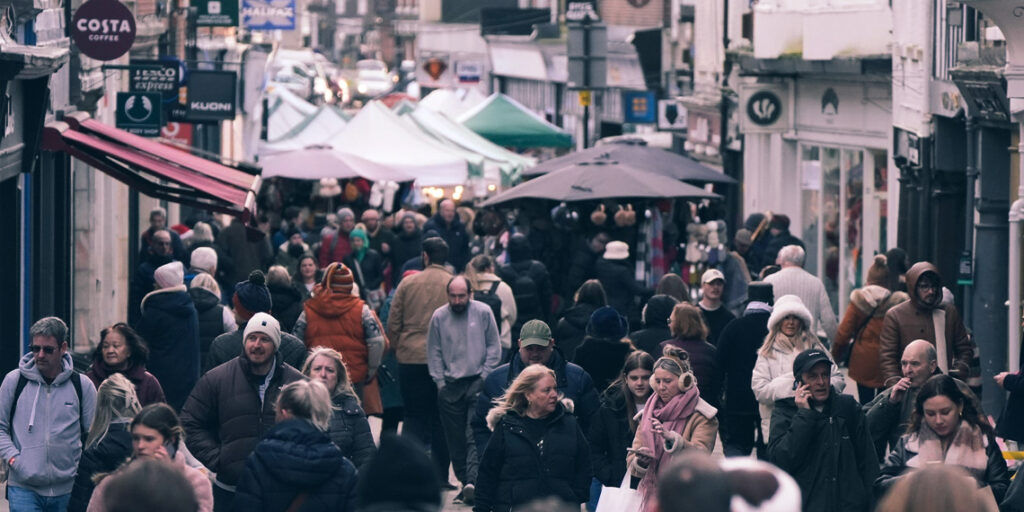Retail prices are expected to climb in 2025 as the critical Christmas trading period failed to meet retailers’ expectations, according to data from the British Retail Consortium (BRC) and accounting giant KPMG.
Sales during the “golden quarter” – October through December – grew by a modest 0.4%, highlighting a subdued festive season.
This period is traditionally crucial for retailers, many of whom rely on Christmas sales to sustain operations through leaner months like January and February, with some generating a significant portion of their annual revenue during the holidays.
The lacklustre growth reflects weak consumer confidence and challenging economic conditions, according to Linda Ellett, KPMG’s UK head of consumer, retail, and leisure. She noted that many households remain cautious in managing their budgets.
Non-Food Sales Take a Hit
Non-food sales were particularly impacted, contracting by 1.5% in the four weeks leading up to 28 December compared to the previous year.
Despite the broader challenges, one major retailer specialising in homewares and fashion reported a 5.7% increase in adjusted full-price sales over the nine weeks to 28 December, prompting it to raise its annual profit forecast by £5 million for the fourth time in six months.
The chain attributed this growth to strong overseas performance and robust UK online sales.
Festive Highlights and Challenges
While overall growth was limited, food sales increased by 3.3% in 2024 compared to 2023.
Beauty products, jewellery, and electrical items performed well during the festive season, aided by innovations like AI-powered technology and beauty advent calendars, Ms Ellett added.
However, the outlook remains challenging for retailers. With employer costs set to rise in April due to increases in the minimum wage and national insurance contributions, businesses face mounting wage bills.
According to Helen Dickinson, the BRC’s chief executive, these costs are unlikely to be offset by higher sales, leaving many retailers with no choice but to raise prices or reduce investment in stores and jobs. This could have far-reaching consequences for high streets and local communities.
Consumer Spending Stalls
Separate figures from Barclays revealed that card spending in December remained flat year-on-year, with essential spending dropping 3%. This decline was partly driven by reduced fuel costs but also reflected ongoing inflation concerns.
A significant majority of consumers surveyed by the bank expressed anxiety over rising food prices (86%) and household bills (87%).
Retailers now face a precarious balancing act, navigating economic pressures and cautious consumer spending while trying to maintain competitiveness in 2025.


